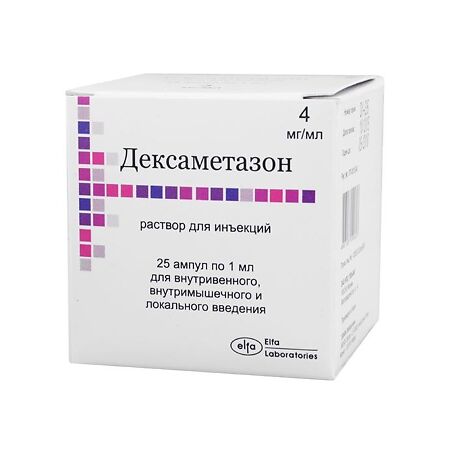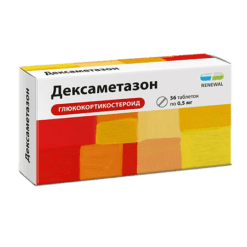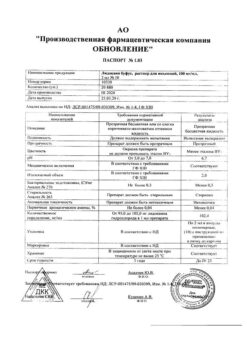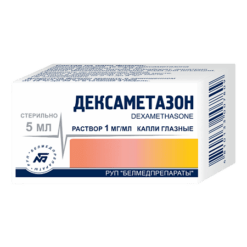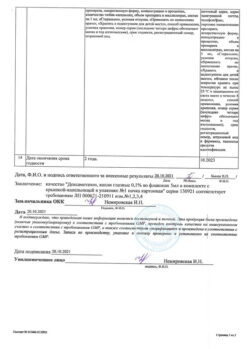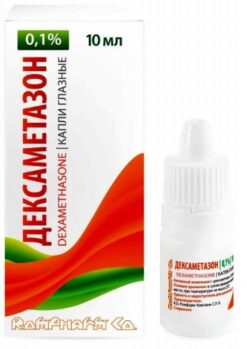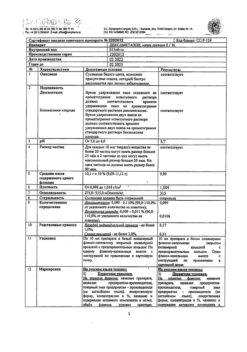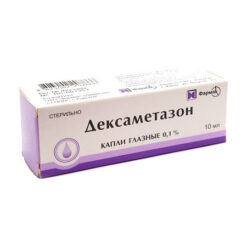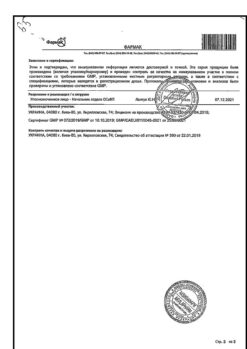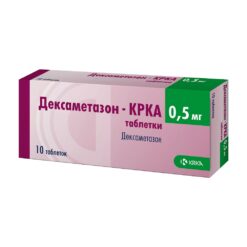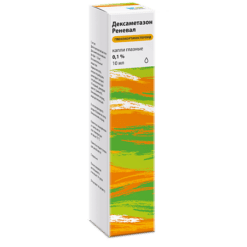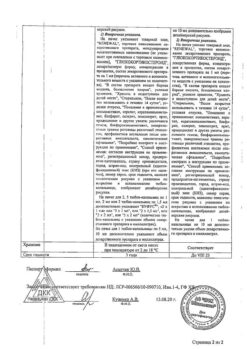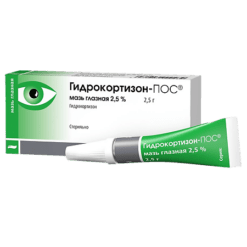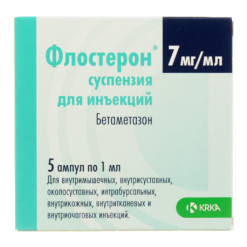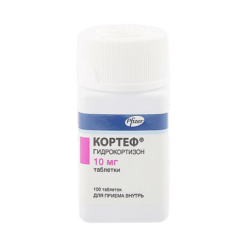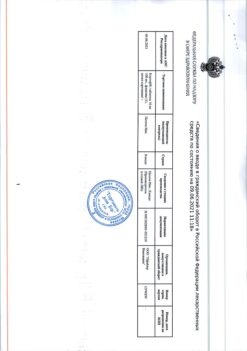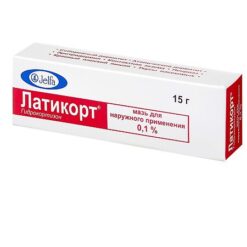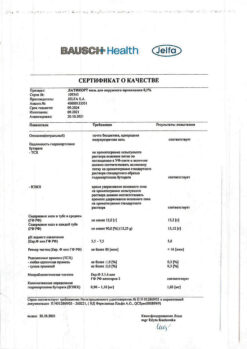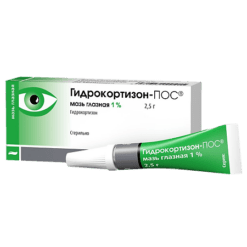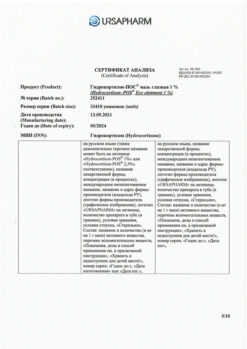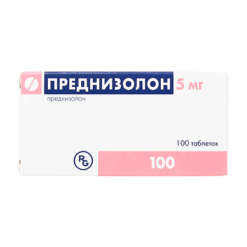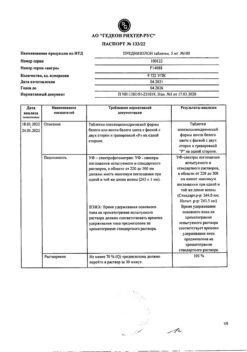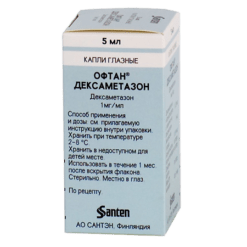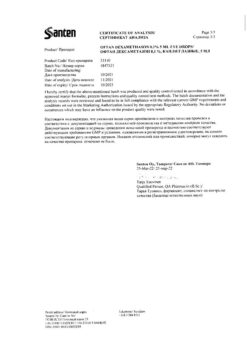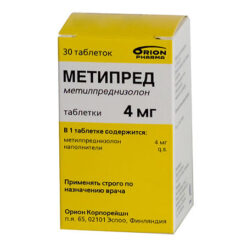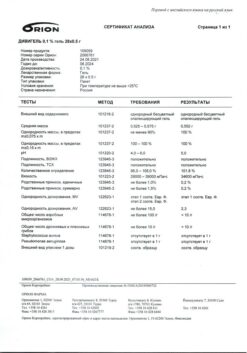No products in the cart.
Dexamethasone, 4 mg/ml 1 ml 25 pcs
€7.57 €6.31
Description
Dexamethasone has a pronounced anti-inflammatory, anti-allergic and desensitizing effect, has immunosuppressive activity.
It slightly retains sodium and water in the body. These effects are associated with inhibition of release of inflammatory mediators by eosinophils; induction of lipocortin formation and reduction of the number of mast cells producing hyaluronic acid; reduction of capillary permeability and stabilization of cell membranes (especially lysosomal) and organelle membranes.
The immunosuppressive effect is due to inhibition of release of cytokinins (interleukin 1, 2, gamma interferon) from lymphocytes and macrophages. The main effect on metabolism is connected with protein catabolism, increased gluconeogenesis in liver and decreased utilization of glucose by peripheral tissues.
The drug inhibits vitamin D activity, which leads to decreased calcium absorption and increased calcium excretion. Dexamethasone suppresses the synthesis and secretion of ACTH and secondary to the synthesis of endogenous glucocorticoids. The peculiarity of the drug action is a significant inhibition of pituitary function and complete absence of mineralocorticoid activity.
Indications
Indications
shock of various origins (anaphylactic, post-traumatic, postoperative, cardiogenic, blood transfusion, etc.);
cerebral edema (with a brain tumor, traumatic brain injury, neurosurgical intervention, cerebral hemorrhage, encephalitis, meningitis, radiation injury);
status asthmaticus;
severe allergic reactions (Quincke’s edema, bronchospasm, dermatosis, acute anaphylactic reaction to drugs, serum transfusion, pyrogenic reactions);
acute hemolytic anemia, thrombocytopenia, agranulocytosis;
acute lymphoblastic leukemia;
severe infectious diseases (in combination with antibiotics);
acute adrenal insufficiency;
acute croup;
acute (or exacerbation) rheumatic diseases, systemic connective tissue diseases and joint diseases (humeral periarthritis, epicondylitis, styloiditis, bursitis, tenosynovitis, compressive neuropathy, osteochondrosis, arthritis of various etiologies, osteoarthritis);
diagnosis of adrenocortical insufficiency, pituitary short stature (in children), affective disorders, incl. for depression.
Pharmacological effect
Pharmacological effect
Dexamethasone has a pronounced anti-inflammatory, antiallergic and desensitizing effect, and has immunosuppressive activity.
Slightly retains sodium and water in the body. These effects are associated with inhibition of eosinophil release of inflammatory mediators; inducing the formation of lipocortins and reducing the number of mast cells that produce hyaluronic acid; with a decrease in capillary permeability; stabilization of cell membranes (especially lysosomal) and organelle membranes.
The immunosuppressive effect is due to inhibition of the release of cytokinins (interleukin 1, 2, interferon gamma) from lymphocytes and macrophages. The main effect on metabolism is associated with protein catabolism, increased gluconeogenesis in the liver and decreased glucose utilization by peripheral tissues.
The drug inhibits the activity of vitamin D, which leads to a decrease in calcium absorption and an increase in its excretion. Dexamethasone suppresses the synthesis and secretion of ACTH and, secondarily, the synthesis of endogenous glucocorticoids. A peculiarity of the drug’s action is significant inhibition of pituitary function and the complete absence of mineralocorticoid activity.
Active ingredient
Active ingredient
Dexamethasone
Composition
Composition
Active ingredient:
dexamethasone sodium phosphate 4 mg;
Excipients:
methylparaben – 1.5 mg;
propylparaben – 0.2 mg;
sodium metabisulfite – 2 mg;
disodium edetate – 1 mg;
sodium hydroxide – up to pH 7–8.5;
water for injection – up to 1 ml.
Contraindications
Contraindications
Arterial hypertension, Itsenko-Cushing’s disease, psychosis, renal failure, osteoporosis, peptic ulcer of the stomach and duodenum, bacterial endocarditis, syphilis, tuberculosis, diabetes mellitus, pregnancy, systemic mycoses, infectious lesions of the joints, stage III-IV obesity, hypersensitivity to dexamethasone;
Side Effects
Side Effects
With short-term therapy: nausea, vomiting, bradycardia, arrhythmias, ulceration of the gastrointestinal mucosa, decreased immunity.
With long-term use: Itsenko-Cushing syndrome, hyperglycemia, pancreatitis, myocardial dystrophy, headache, convulsions, psychosis.
Local reactions: immediately after instillation of the drug, a quickly passing burning sensation is possible. With prolonged use, intraocular pressure may increase (therefore, when using drugs containing corticosteroids for more than 10 days, intraocular pressure should be measured regularly).
When used for more than 3 months, posterior capsular cataracts may develop. Regeneration processes may slow down.
Storage conditions
Storage conditions
The drug should be stored in a place protected from light, out of reach of children, at a temperature of 15° to 25°C.
Shelf life
Shelf life
2 years
Manufacturer
Manufacturer
Elfa Laboratories, India
Additional information
| Shelf life | 2 years |
|---|---|
| Conditions of storage | The drug should be stored in the dark place out of the reach of children at 15° to 25°C. |
| Manufacturer | Elfa Laboratories, India |
| Medication form | solution for injection |
| Brand | Elfa Laboratories |
Other forms…
Related products
Buy Dexamethasone, 4 mg/ml 1 ml 25 pcs with delivery to USA, UK, Europe and over 120 other countries.

